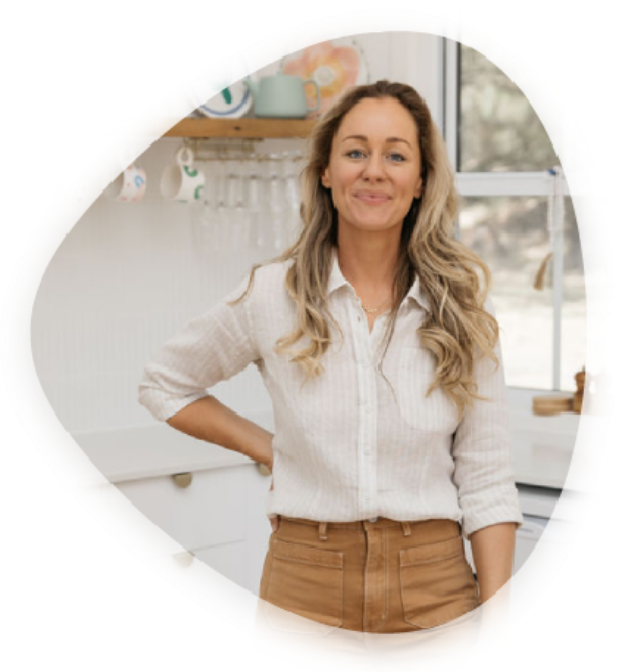When does normal stress manifest into something more, like anxiety?
Anxiety is more than just feeling stressed or worried. While stress and anxious feelings are a common response to a situation where we feel under pressure, they usually pass once the stressful situation has passed, or ‘stressor’ is removed.
Anxiety is when these anxious feelings don’t go away – when they’re ongoing and happen without any particular reason or cause. It’s a serious condition that makes it hard to cope with daily life. Everyone feels anxious from time to time, but for someone experiencing anxiety, these feelings aren’t easily controlled.
In Australia, it’s estimated that 45 per cent of people will experience a mental health condition in their lifetime.1 In any one year over 2 million have anxiety.2 If you have ever suffered from anxiety you know how disabling it can be.
The symptoms are sometimes not all that obvious as they often develop slowly over time and, given we all experience some anxiety at various points in our lives, it can be hard to know how much is too much.
Normal anxiety tends to be limited in time and connected with some stressful situation or event, such as a job interview. The type is experienced by people with an anxiety condition is more frequent or persistent, not always connected to an obvious challenge, and impacts on their quality of life and day-to-day functioning. While each condition has its own unique features, there are some common symptoms including:
- Physical: panic attacks, hot and cold flushes, racing heart, tightening of the chest, quick breathing, restlessness, or feeling tense, wound up and edgy
- Psychological: excessive fear, worry, catastrophizing, or obsessive thinking
- Behavioral: avoidance of situations that make you feel anxious which can impact on study, work or social life
Treatment
The treatments for anxiety that work for you depend both on you and the type and severity of anxiety disorder you have. Mild anxiety may be helped by making lifestyle changes, whereas more severe cases may require medication.
Recovery is possible with the right care. Common treatments and ways to manage anxiety include the following.
Cognitive behaviour therapy (CBT)
Cognitive behaviour therapy (CBT) involves working towards changing any problematic thinking patterns that are causing anxiety.
Behaviour therapy is a component of CBT and includes ‘desensitisation’, a method of slowly and safely exposing you to feared situations to reduce the anxiety that comes with them.
Breathing and relaxation techniques
Breathing and relaxation techniques are especially important for physical symptoms, and deep breathing exercises can stop panic attacks effectively. Mindfulness and other types of meditation are also helpful for anxiety management.
Moderate exercise
Exercising – even a 10-minute short walk – can help to improve how you feel and may make you feel less tired. Exercise helps boost your levels of serotonin – these are ‘feel good’ hormones. If you have not exercised in a long time, check with your doctor that you have no underlying health problems that might cause you to hurt yourself.
Try a brisk walk every day if you do not feel ready to undertake a rigorous exercise regime. Try to get involved in activities and pastimes you previously enjoyed – even if you don’t feel like it.
There may be small tasks in the house or garden that you can do. Tackling small tasks that you may have been avoiding may help you to feel better about yourself.
Cutting down on caffeine
Caffeine can increase anxiety in some people. It can alter your sleep patterns so you are not fully rested. It also speeds up your heartbeat, which can make anxiety worse.
Try to reduce the amount of caffeine in your diet. Cutting back on tea and coffee and replacing them with water or fruit juices can help.
Avoiding caffeine products, like chocolate, cola or energy drinks after 6 pm may help you feel more relaxed when you want to go to sleep.
Alcohol in moderation
If you are feeling anxious, you may feel like drinking more alcohol than usual, but this will make the anxiety worse, so you should try to drink alcohol in moderation.
The government recommends that healthy adults drink no more than two standard drinks a day and no more than four standard drinks on a single occasion. A standard drink contains 10g of alcohol. For example, 285mL of full-strength beer contains 1.1 standard drinks and a small glass of wine (100mL) is one standard drink.
Quitting smoking
Quitting smoking is one of the best ways to improve your overall health and wellbeing. It can also help reduce anxiety. If you need help with quitting you should visit your doctor for advice or visit the Quitnow website.
Medication
In regards to medication, this is a conversation that should have between your doctor and any other health care providers
Naturopathy and anxiety
I would say that up over 50% of my clients have in the past or currently suffer anxiety. This may be due to numerous different reasons, no two people are the same, nor is treatment.
Our first point of call is working on diet and lifestyle factors.
Naturopathy can help by assessing the dietary triggers, as mentioned earlier, caffeine, nicotine and alcohol can contribute to anxiety. On the flip side, there are foods that we know can help reduce anxiety by supporting the ‘feel-good’ chemicals within the brain.
Next, we can look at what has been proven to improve symptoms. There is a broad range of nutritional, that help; magnesium and fish oil. Sadly often the over the counter ones, are… I am sorry to say crap, with poor quality, low active constituents and poor availability – essentially, expensive urine. Practitioner only products are the best with a depth of scientific research backing their use, you can be assured what you are taking will help.
Next stop, herbal medicine. Now I could literally talk about herbs all day, probably all week. Herbs for anxiety are truly AMAZING! Not only do I take them myself but I see firsthand the results from clients. Now what herbs work? There a few. What will work for you? Well it depends what else is going on.
Before you go ducking out to top up, the same thing as nutritionals, you get what you pay for. In clinic I take a solid case history and we look at the bigger picture, and you. Then I create a mix, designed specifically for you, so if its anxiety and IBS, anxiety and headaches, anxiety and sleepless nights – we use this information to ensure your herb mix matches your symptoms. Clients notice a change in how they feel, about 7-10 days, with the full effect taking 4-6 weeks. The herbs can be taken long term or for a short time during increased stress. There is no issues with stop the herbs and most will not interfere with other medications.
If you have any questions about what Naturopathy can do you for you email me here and we can have a chat Lxx
Online support tools
If you suffer from an anxiety disorder, it’s important to remember you are not on your own. There are services, health care professionals and online support tools available to assist people with anxiety disorders. The first step is to get a firm diagnosis. Consulting a doctor can help you in taking this first step.
Online tools may be suitable if you have mild to moderate anxiety. There is a range of different programs, most of which are backed up by phone, email, text or web chat support from a mental health specialist. These online therapies can be particularly helpful if you are living in a rural and remote area where access to health professionals may be more difficult.
At any time, if you feel that you may harm yourself or have thoughts of suicide, talk to family or friends and inform your doctor as a matter of urgency. You can ring a phone service such as Lifeline 13 11 14, available 24 hours a day. If you are the loved one or carer, dial triple zero (000).
Beyond Blue https://www.beyondblue.org.au/ 1300 22 4636
Information sourced, https://www.beyondblue.org.au/ and https://www.mindhealthconnect.org.au/treatments-for-anxiety
WHERE TO FROM HERE?
To book an appointment with Lindsay, in the Sydney Naturopath clinic please click the book now or email me on lindsay@www.sanatio.com.au

